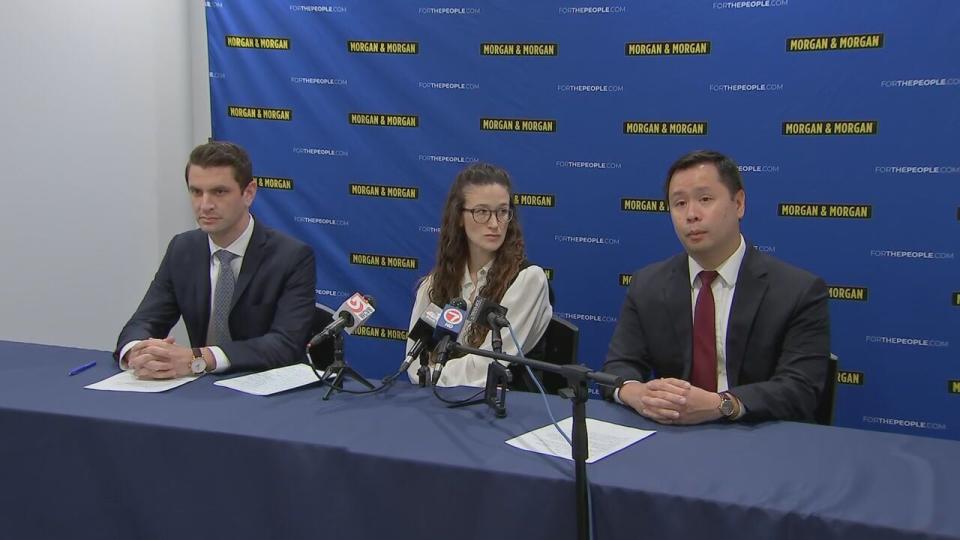Jun. 6—The state Supreme Court has agreed to review a law approved by Spokane voters last November that restricted the homeless from camping within most of the city, the final step in a nearly yearlong effort by plaintiffs who argue the initiative is invalid on technical grounds.
Briefs are due in that case by July 5. Oral arguments have not been scheduled.
Voters overwhelmingly approved Proposition 1, which banned camping on public land within 1,000 feet of Spokane’s schools, parks, playgrounds and licensed day care facilities — covering more than 60% of the entire city, by some estimates. Under the law, violators can face a misdemeanor citation.
Brian Hansen, the Spokane attorney who submitted the ballot initiative earlier this year, had argued the new law was needed to protect children from criminal behavior associated with encampments. He has pointed to reports of open drug use and indecent exposure at Camp Hope, which occupied a city block in the East Central Neighborhood and was once the state’s largest homeless encampment. It closed last June.
Some have argued the sweeping restrictions placed on the homeless by the new law could run afoul of a 2018 precedent by the U.S. Court of Appeals for the Ninth Circuit. That ruling in the Martin v. Boise case stated that cities can ban camping on some but not all public property, unless the city can demonstrate there are available shelter beds that someone could have used instead.
Prohibiting camping on all public land amounted to criminalizing people for the act of being homeless, which was cruel and unusual punishment in violation of the Eighth Amendment, the court ruled six years ago. How much public land can be restricted to encampments without running afoul of that precedent remains a matter of unanswered legal debate.
Even before Proposition 1 was approved by voters, the city outlawed camping on any public property, though this law was generally not enforced unless shelter beds were available.
The constitutionality of the law, however, is not what is being argued to the state Supreme Court.
Jewels Helping Hands and Spokane Low Income Housing Consortium Executive Director Ben Stuckart sued Hansen in August, arguing the proposition could not be placed on the November ballot in the first place because it went beyond the scope of local initiative power, infringing on the city’s administrative powers and thereby usurping the authority granted to the city by the state.
In the initial lawsuit, Knoll Lowney, one of the Seattle-based attorneys representing the plaintiffs, argued in court that state law gives city councils the exclusive power to craft homeless plans and make land-use decisions. Hansen’s initiative superseded the Spokane City Council’s authority and was therefore invalid, according to the lawsuit.
Spokane Superior Court Judge Tony Hazel disagreed, and on Aug. 24 denied a request for injunctive relief, allowing the question to go before the voters in November.
In December, a state court of appeals court concurred, ruling that Proposition 1 was a legal initiative, upholding the will of local voters.
The constitutionality of Martin v. Boise is under scrutiny, however, in the highest court in the country.
The U.S. Supreme Court heard arguments in April on Johnson v. Grants Pass, which questions whether it is constitutional for the Oregon city to ticket a homeless person for sleeping on public land with a blanket or other materials within city limits. A decision in that case, which is expected this month, has the potential to radically change the protections created by Martin v. Boise.
The ramifications of that decision are difficult to overstate. Governments within the large territory of the Ninth Circuit, which covers much of the western United States, have in many cases invested heavily in homeless shelters, in some cases for the first time in modern history, in order to comply with the provisions of Martin v. Boise and be able to otherwise enforce anti-camping laws.
In many cases in which it has not been possible to provide sufficient shelter beds for a jurisdiction’s homelessness, this has had the practical effect of neutralizing its anti-camping laws, making the issue of homelessness drastically more visible.
As legal battles over Proposition 1 and the protections created by Martin v. Boise continue to swirl, there has not been a case of someone being cited in Spokane under the new law, city spokeswoman Erin Hut confirmed Thursday.
The city continues to otherwise issue citations under “all law on the books” against camping on public property, Hut added, which would include narrower bans on homeless camping within 50 feet of a railroad viaduct, along the banks of the Spokane River and nearby an existing homeless shelter, as well as the more expansive law against camping on any public property when shelter beds are available.
“Our position has not changed, but as has been the case, we respond to complaints of illegal camping,” Hut wrote in a text.
Signup bonus from





